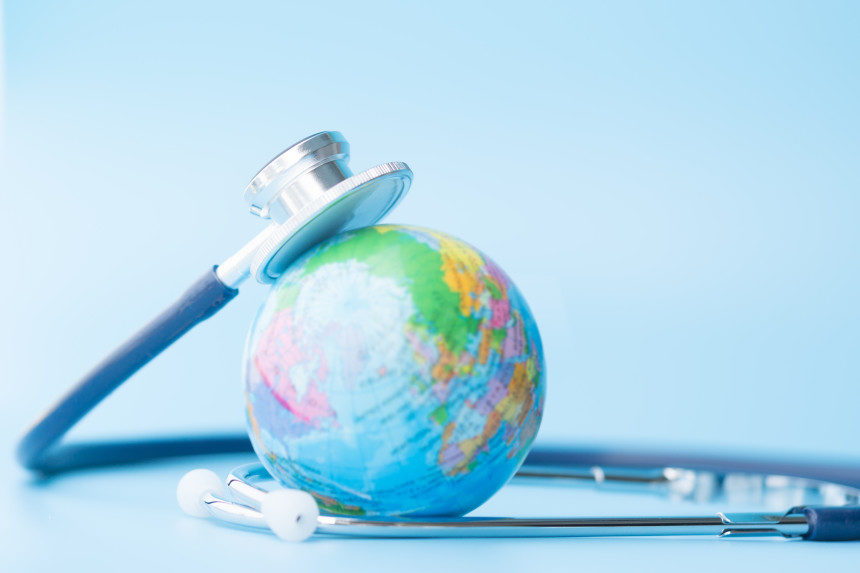“Your Health Checkup” is our online column by Dr. Douglas Zipes, an internationally acclaimed cardiologist, professor, author, inventor, and authority on pacing and electrophysiology. Dr. Zipes is also a contributor to The Saturday Evening Post print magazine. Subscribe to receive thoughtful articles, new fiction, health and wellness advice, and gems from our archive.
Order Dr. Zipes’ new book, Bear’s Promise, and check out his website www.dougzipes.us.
COVID-19 has disproportionately affected people of color and lower socioeconomic status, emphasizing the fact that who you are and where you live impact your health.
I was recently struck by what’s been called the “subway map” view of life expectancy. For example, people living in midtown Manhattan survive on average ten years longer than those living in the south Bronx. Chicago serves as an even more striking example. Life expectancy decreases by 16 years between living near the Chicago Loop versus the west side of the city.
There are few if any medical interventions that produce such astonishing differences in survival.
Many reasons exist to explain the impact of these socioeconomic factors on health, such as homelessness (almost 600,000 presently in the U.S.), hunger (40 million), poverty (40 million), loneliness (40 percent of elderly), incarceration in prisons with minimal health services (2.3 million), uninsured health care (30 million), crime, drugs, racism, air pollution, and other factors.
Many, if not all, of these issues can be reversed or at least minimized if we as a nation choose to do so.
Importantly, addressing them can overcome the negative impact of your genes. For example, lifetime risk for developing cardiovascular disease varies greatly depending on exposure to risk factors such as elevated LDL (bad cholesterol), blood pressure, and stress and the ability to resist its impact, regardless of your genetic predisposition.
To put it another way, nature loads the gun (genes) but the environment (your behavior) pulls the trigger.
There are some things you can do to reduce the negative impact of socioeconomic or genetic influences on your health.
To reduce risks of heart disease, consider the seven steps recommended by the American Heart Association that include not smoking, exercising, and controlling diet, body mass index (BMI), blood pressure, cholesterol, and glucose. The influence of lifestyle on heart disease begins at an early age so the sooner one practices these recommendations, the better.
I have repeatedly advocated for the benefits of vaccination to prevent a multitude of infections such as measles, mumps, rubella, whooping cough, shingles and other diseases.
In addition, recent information suggests that getting the flu vaccine not only reduces the chance of being infected by influenza, but also reduces the subsequent risk of heart disease. Obtaining the flu vaccine for everyone older than six months before the start of the flu season becomes even more crucial in today’s climate because of the COVID-19 pandemic and the impact of having both infections.
Many experts recommend patients get their flu shot in late September or early October to provide protection for the entire flu season since the benefits of the vaccine typically last six months. Seniors older than 65 should receive Fluzone High-Dose, or FLUAD, because it provides better protection against flu viruses by containing four times the antigen in a standard dose, which causes the immune system to have a higher response to the vaccine. Hundreds of millions of Americans have safely received flu vaccine over the past 50 years.
Vaccination is one of the landmark medical advances that has saved millions, probably billions, of lives. Get your flu shot and COVID-19 vaccination when available, as well as other recommended vaccinations.
Featured image: Khongtham / Shutterstock
Become a Saturday Evening Post member and enjoy unlimited access. Subscribe now




Comments
“Vaccination is one of the landmark medical advances that has saved millions, probably billions, of lives. Get your flu shot and COVID-19 vaccination when available, as well as other recommended vaccinations.”
The larger question is whether vaccines are making Americans healthier. Is the risk worth the reward? Consider the following: The U.S. is the most medicated, vaccinated, wireless connected, overfed and fattest nation on earth, and one of the least fit. We consume most of the world’s barbiturates, anti-depressants and other drugs both legal and illegal. Today’s children are the sickest of any American generation since World War II. Several chronic diseases continue to proliferate such as diabetes, obesity, autism, attention deficit, Alzheimer’s, Parkinson’s, cancer, heart disease and arthritis. Some 70 percent of those who volunteer for the military are not accepted due to insufficient mental or physical capacity. Children from countries with far less resources are healthier and more fit than most of ours. The higher incidence of chronic diseases among all age groups tracks closely with the proliferation of vaccines and use of drugs. Rather than look to vaccines as a cure all, perhaps we should be actively building up our health and immune systems through better diets, exercise and sleep.
If one were to honestly “follow the science”, look to studies that compare the long-term health of children who were fully vaccinated vs those who were never vaccinated. Despite being asked by several concerned scientists and members of Congress to conduct such a study, the CDC has not done so. The vast majority of private studies on the issue show that those who were never vaccinated are healthier, particularly with respect to avoiding chronic disease which affects roughly half the U.S. population. Rather than vaccines, most science suggests America’s health gains are largely due to better personal and community hygiene, less pollution of our air, water and soil, a generally safer healthcare system, and more prosperity among a greater percentage of the population.
As for flu shots, the risk-reward ratio is not favorable for those with compromised immune systems. For them it is better to build up their immune system through better diets including supplements free of impurities and heavy metals, medically supervised exercise programs, and regular sleep with all electronics unplugged in the bedroom.